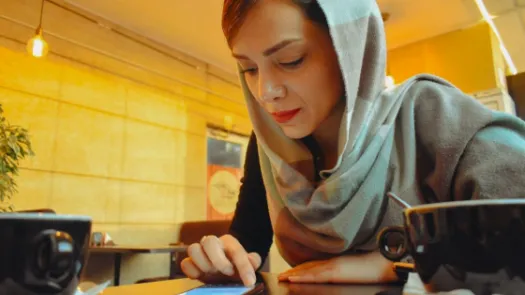Some personal views from around the world on ID cards

In 1994, in an attempt to discover the problems caused by ID cards, Privacy International compiled a survey containing reports from correspondents in forty countries. Amongst the gravest of problems reported to Privacy International was the over zealous use or misuse of ID cards by police - even where the cards were supposed to be voluntary. One respondent wrote:
On one occasion I was stopped in Switzerland when walking at night near Lake Geneva. I was living in Switzerland at the time and had a Swiss foreigner's ID card. The police were wondering why I should want to walk at night to look at the Chateau de Chillon. Really suspicious I suppose, to walk at night on the banks of the lake to look at an illuminated chateau (I am white and dress conservatively). I had to wait for 20 minutes whilst they radioed my ID number to their central computer to check on its validity."
Correspondents in most countries reported that police had powers to demand the ID card. A correspondent in Greece reported:
In my country the cards are compulsory. If police for example stop you and ask for identification you must present them the ID or you are taken to the police department for identification research."
Police were granted these powers in the late 1980s, despite some public misgivings. Non-European countries reported more serious transgressions, In Brazil, for example:
They are compulsory, you're in big trouble with the police if they request it and you don't have one or left home without it. The police can ask for my identity card with or without a valid motive, it's an intimidation act that happens in Brazil very, very often. The problem is not confined to the police. Everybody asks for your ID when you are for example shopping, and this is after you have shown your cheque guarantee card. We also have other similar cards. Nobody trusts anybody basically."
Predictably, political hot-spots have seen widescale abuse of the card system:
One problem that Afghans encountered carrying these "tazkiras" (ID cards) was during the rule of the communist regime in Afghanistan where people were stopped in odd hours and in odd places by the government's Soviet advisors and their KHALQI and PARCHAMI agents and asked for their "tazkiras". Showing or not showing the "tazkira" to the enquiring person at that time was followed by grave consequences. By showing it, the bearer would have revealed his age upon which, if it fell between 16-45, he would have been immediately taken to the nearest army post and drafted into the communist army, and if he refused to show, he would have been taken to the nearest secret service (KHAD) station and interrogated as a member of the resistance (Mujahideen), imprisoned, drafted in the army or possibly killed."
Many countries reported that their ID card had become an internal passport, being required for every dealing with people or institutions. In Argentina, according to this correspondent, the loss of the ID card would result in grave consequences:
I got my first personal ID when I turned seven. It was the Provincial Identity Card. It looked like the hardcover of a little book with just two pages in it. It had my name, my photograph, the fingerprint of my right thumb, and some other personal data. I never questioned what was the logic about fingerprinting a seven-year old boy. It was suggested that identification was one of the major purposes for the existence of the Police of the Province which issued the card. It was required for enroling in the Provincial School I attended. Attending the primary school is compulsory, hence everybody under twelve is indirectly forced to have the Card. Well, this Book was required for any sort of proceedings that the person wanted to initiate, e.g. enrol at school, buy a car, get his driving license, get married. Nobody could do anything without it. In addition, it became a prerogative of the police to request it at any time and place. Whoever was caught without it was customarily taken to jail and kept there for several hours (or overnight if it happened in the evening) while they "checked his personal record". In effect, Argentine citizens have never been much better off than South-African negroes during the Apartheid, the only difference is that we Argentinians did not have to suffer lashings if caught without the pass card. As for daily life without the ID, it was impossible."
Of greater significance is the information that ID cards are commonly used as a means of tracking citizens to ensure compliance with such laws as military service. Again, in Argentina:
The outrage of the military service was something that many people were not ready to put up with. Nevertheless, something forced the people to present themselves to be drafted. It was nothing more or less than the ID. In fact, if somebody did not show up, the army never bothered to look for them. They just waited for them to fall by themselves, because the ID card showed the boy to be of military age and not having the necessary discharge records by the army. Provided that in the country you could not even go for a walk without risking to be detained by the police, being a no-show for military duty amounted to a civil death."
Another respondent in Singapore noted that many people in his country were aware that the card was used for purposes of tracking their movements, but that most did not see any harm in this:
If that question is put to Singaporeans, they are unlikely to say that the cards have been abused. However, I find certain aspects of the NRIC (ID card) system disconcerting. When I finish military service (part of national service), I was placed in the army reserve. When I was recalled for reserve service, I found that the army actually knew about my occupation and salary! I interpreted this as an intrusion into my privacy. It might not be obvious but the NRIC system has made it possible to link fragmented information together."
The consequences of losing one's card were frequently mentioned:
A holiday in Rio was ruined for me when I was robbed on the beach and had to spend the rest of the brief holiday going through the bureaucracy to get a duplicate issued. One way round this (of dubious legality) is to walk around with a notarized xerox copy instead of the original."
The Brazillian experience shows that the card is often misused by police:
Of course violent police in metropolitan areas of Sao Paulo and Rio de Janeiro love to beat and arrest people (especially black/poor) on the pretext that they don't have their ID card with them."
In some countries, denial of a card means denial of virtually all services:
ID cards are very important in Vietnam. They differentiate between citizens and non-citizens. People without an ID card are considered as being denied of citizenship and all the rights that come with it. For example, they cannot get legal employment, they cannot get a business license, they cannot go to school, they cannot join official organizations, and of course they cannot join the communist party. They cannot travel either. (Even though in practice, they bribe their way around within the country, they would face big trouble if got caught without an ID card."
The same problem occurs in China:
I personally feel that the card has the following drawbacks: It carries too much private info about a person. We have to use it in almost every situation such as renting a hotel room, getting legal service from lawyers, contacting government agencies, buying a plane ticket and train ticket, applying for a job, or getting permit to live with your parents, otherwise your residence is illegal. In a lot of cases, we are showing too much irrelevant information to an agency or person who should not know that. The card is subject to police cancellation, and thus without it, one can hardly do anything, including traveling for personal or business purposes, or getting legal help or obtaining a job. The government has been using this scheme too often as a measure against persons who run into troubles with it socially or politically. The identity card is showing your daily or every short-term movement, and can be used to regularize and monitor a person's behavior and activity."
One Korean professor reported that the national card was used primarily as a means of tracking peoples activities and movements:
If you lose this card, you have to report and make another one within a certain period. Since it shows your current address, if you change your address then you must report that and make a correction of the new address. If you go to a military service or to a prison, then the government takes away this identity card. You get the card back when you get out. You are supposed to carry this card everywhere you go, since the purpose is to check out the activity of people. There are fines and some jail terms if you do not comply. If you board a ship or an airplane, then you must show this card to make a record. You need to show this card when you vote. Former presidential candidate Kim Dae Joong could not vote for his own presidential election because his secretary forgot to bring Kim's card. He had to wait for a while until somebody brought his card. Many government employees make a lot of money selling information on this card to politicians during election season. Police can ask you to show this card and check whether your identity number is on the wanted list or not. There is a widespread prejudice between the people of some local areas. This card shows the permanent address of you. And it allows other people to successfully guess the hometown of your parents."
One Portuguese man studying in the United States reported an obsession with identity in his country:
I keep losing my ID card, and people keep asking for it. It seems like it's needed for just about everything I want to do, and I should really carry it around my neck or have it tattooed on my palm. The information on it is needed for everything. Many buildings, perhaps most, will have a clerk sitting at a "reception desk" who will ask you for your ID. They will keep it and give it back to you when you leave. Few people seem bothered with this, but then they don't keep losing their cards like I do. So I usually throw a little tantrum: "Are we under curfew? Why do I have to carry my ID with me anyway?" Our tolerant culture invariably leads the clerk to take whatever other document I happen to be carrying - usually my bus pass, which I lose less often. After a while I surrender and go get myself a new ID card. It takes 1/2 a day or more to do this and - guess what - you need your old ID card. It's more complicated if you've lost it. Then finally I am legal again for a while. It's partly due to the Portuguese obsession with identity. Everyone carries both their mother's and father's last names."
Others confirmed the traditional problem of counterfeiting:
It costs only 300 rupees ($10) to get a counterfeit ID card. The system hardly works. We all know how fake IDs (one guy's photo, another one's name) can be obtained so people can have their friends take GREs and TOEFLs (national tests) for them."



